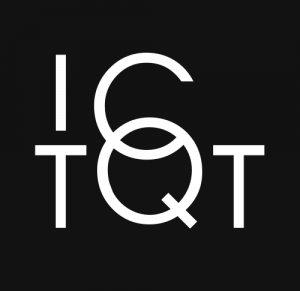We are looking for a Post-doctoral Researcher to work in the International Centre for Theory of Quantum Technologies (ICTQT) hosted by the University of Gdańsk. The position is offered in the Quantum Devices in Computer Science Group led by Michał Studziński.
The position has been created as part of the FENG project No. FENG.02.01-IP.05-0006/23 \"International Centre for Theory of Quantum Technologies 2.0: R&D Industrial and Experimental Phase”. The project is implemented under the International Research Agenda program financed by the European Funds for a Smart Economy 2021-2027 (FENG), Priority FENG.02 Innovation-friendly environment, Measure FENG.02.01 International Research Agendas.
Keywords: theory of quantum technologies, quantum information, quantum information processing, quantum algorithms, higher-order quantum computing, symmetries and representation theory.
Key responsibilities include:
1. Actively conducting scientific research.
2. Presentation and discussion of ideas and results with a diverse audience at ICTQT and at external events.
3. Participation in seminars, group meetings, and other activities of scientific exchange.
About the FENG project
The increasing number of interconnected devices has made secure information transfer and collection essential. However, communication networks are vulnerable to attacks, and cryptographic codes can become breakable with advances in computer algorithms. Quantum technologies offer solutions to such problems, enabling processes that are impossible with standard methods. However, even though few examples of quantum technologies have passed beyond the proof of concept stage, there are still factors which hinder their application potential. The run-of-the-mill development strategy is to keep the core methods behind quantum technologies as they are and focus on incremental improvements of various components. In our opinion, what quantum technologies need rapid progress, to reach the expected high socioeconomic impact, are qualitative breakthroughs and the introduction of new core methodologies. Thus, our emblematic technological goals relevant for both the research agenda of the project No. FENG.02.01-IP.05-0006/23 and the scientific mission of ICTQT, are to develop new out-of-the-box disruptive methods for quantum technologies, as well as new applications of quantum methods, both aimed at broader and faster commercialization. Our research will focus on developing quantum devices and patentable intellectual property, such as quantum random number generators, quantum communication links, improved sensing and metrology or quantum software. We shall address the needs of the maritime sector, including off-shore wind farms. We shall collaborate with the official partner, IQOQI-Vienna, groups majoring in experiments in Warsaw, Stockholm, Munich and Concepción, and with industrial partners, including SeQure Quantum.
About the Quantum Devices in Computer Science Research Group (QDCS) led by Michał Studziński
The group’s objectives are: analysis of physical implementations of quantum devices, understanding their dynamics, and optimizing their performance. The main goals of the project are to develop algorithmic schemes for (i) quantum measurements and (ii) NISQ and beyond-NISQ quantum computing, optimize devices for specific implementations, and develop novel paradigms for special-purpose quantum devices beyond quantum computing. The optimization of quantum devices for communication, NISQ, and beyond-NISQ computing, as well as the design of new devices based on graph structures, symmetries with a wide range of applications is planned.
The project tasks will include designing algorithmic tools for estimating quantum properties and developing higher-order quantum computation methods, including the quantum combs formalism and indefinite causal structures. Additionally, we plan to focus on selected aspects of quantum error correction and methods for protecting quantum devices from noise, particularly by exploring symmetries underlying computational problems. In this context, one of the first goal is to investigate noisy universal quantum programmable processors and their modifications.
As a parallel research direction, we aim to develop mathematical tools based on recent advancements in mixed Schur-Weyl duality to reduce the complexity of quantum algorithms (e.g., in quantum machine learning methods) and to develop new ones with promising practical applications. Furthermore, we intend to apply these mathematical insights to symmetry-based reductions of semidefinite programming (SDP) formulations, which are relevant to quantum computational and processing tasks.
We expect the potential candidate to be capable of working within a larger international collaboration and to be willing to undertake scientific trips related to the project. Collaboration with industrial partners regarding specific aspects within the project goals is possible. The candidate is expected to be willing to undertake research tasks beyond the project's description, provided they align with the mission of ICTQT and the group leader’s interests.
Job offer details, click here.
Recruitment form, click here.
Application deadline: March 21st, 2025 CET (inclusively).
Please submit the documents via email to ictqt-careers[at]ug.edu.pl, in the email subject, please include reference code: FENG_2025_3
Advert posted on February 18th, 2025.

